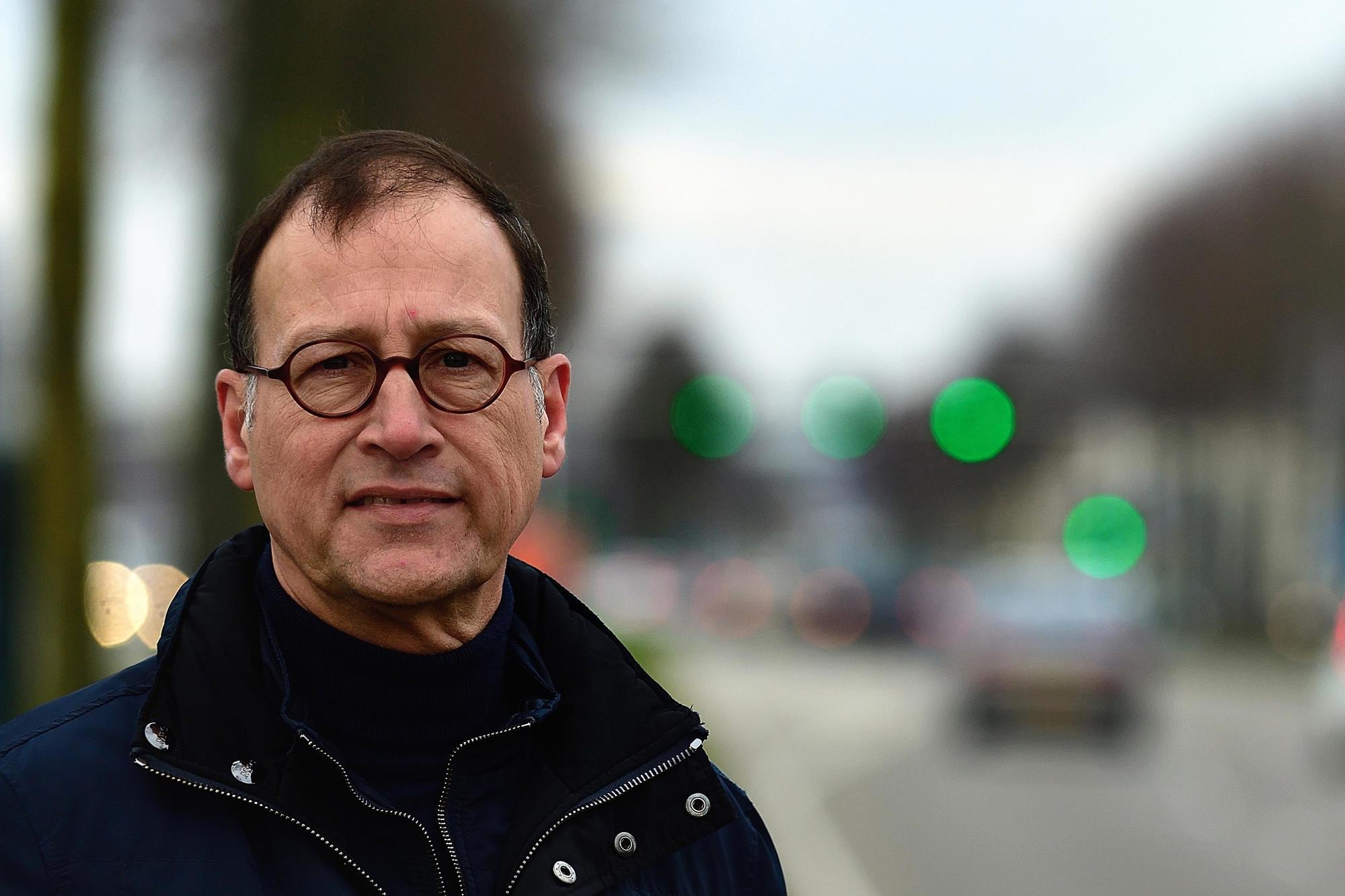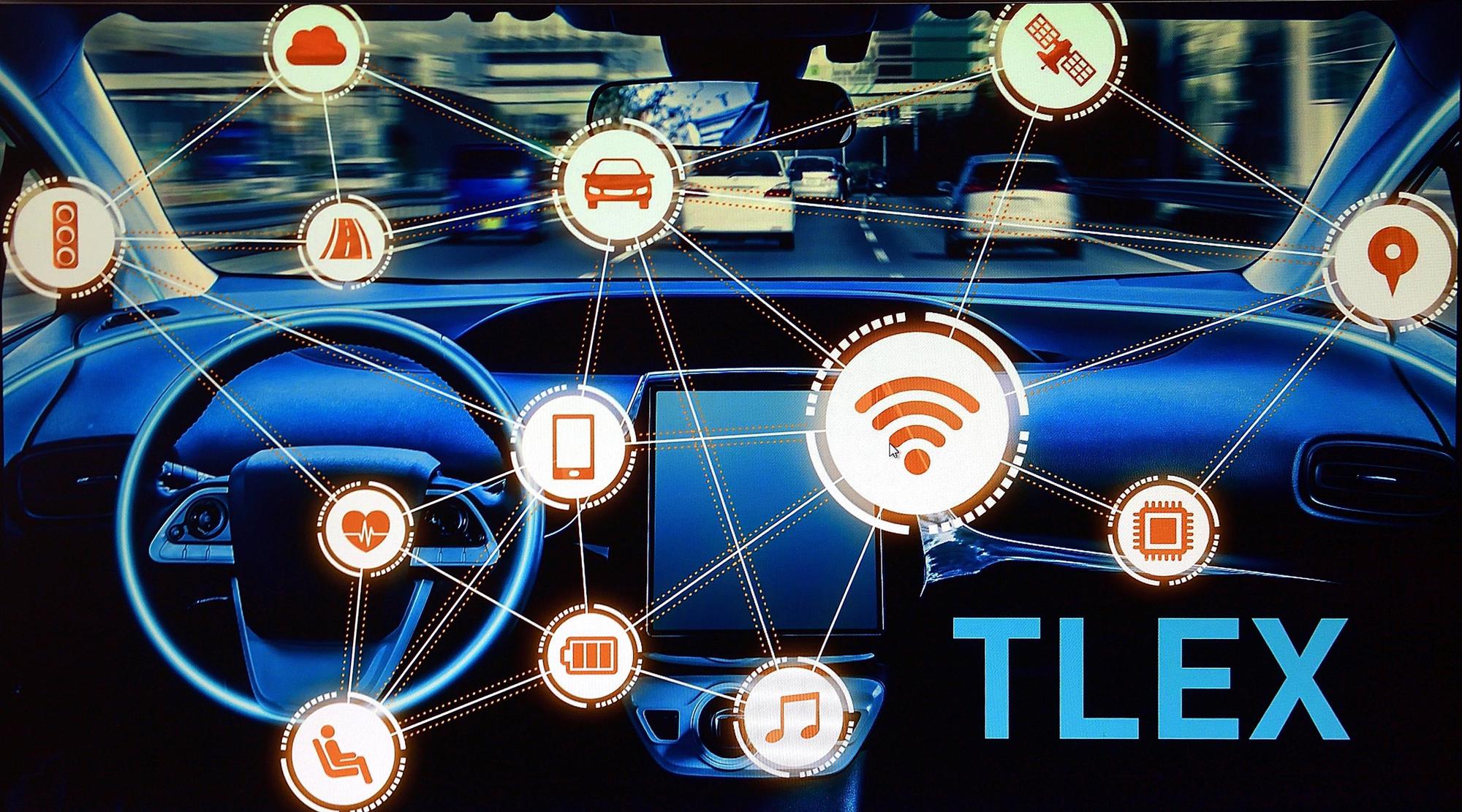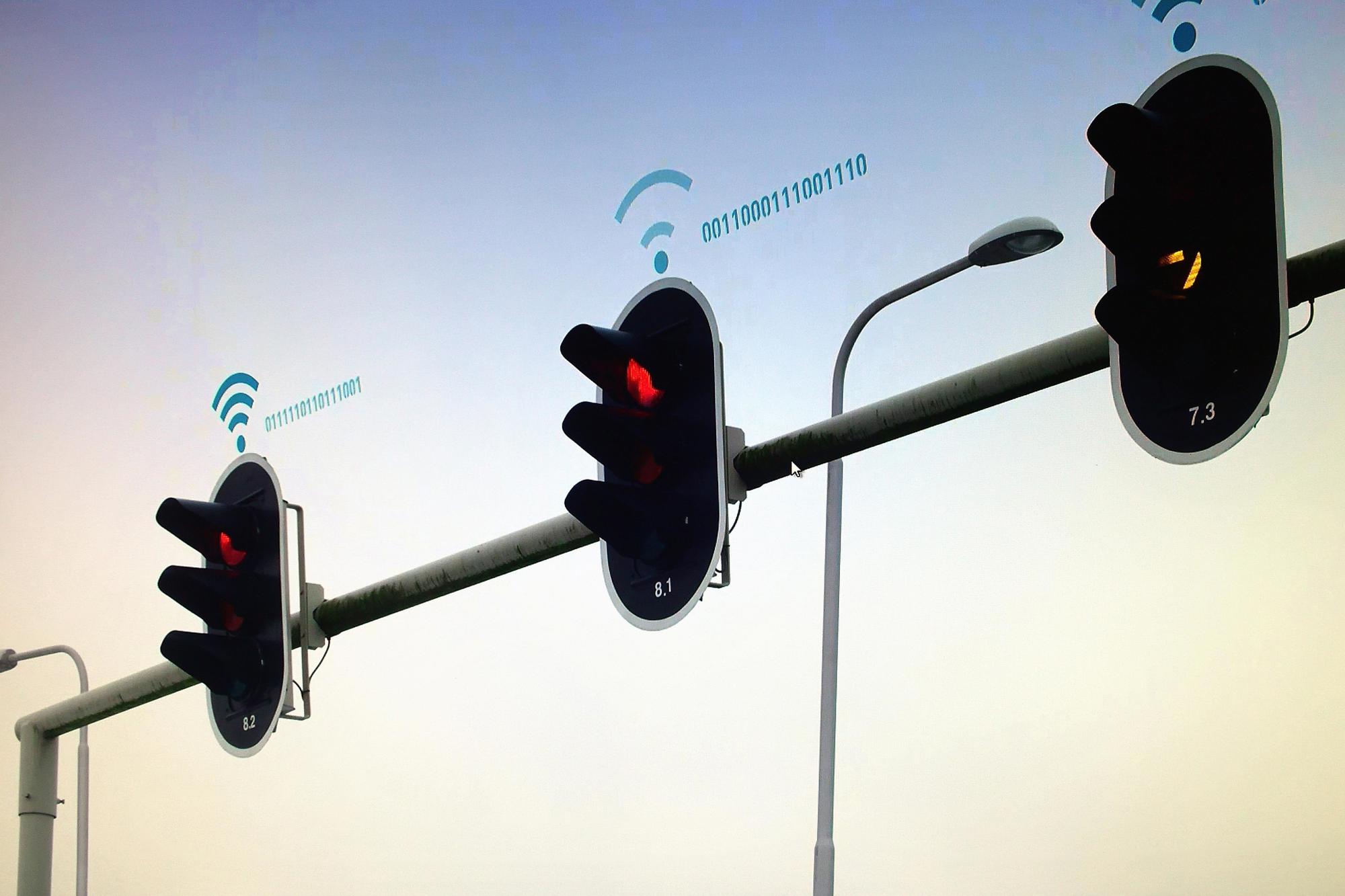Our roads and railway network are increasingly congested. Monotch, a company based in the Dutch town of Made, develops smart mobility platforms to improve traffic flows. On the road with Paul Potters: “We collect data, enrich it by combining sources and offer it from a central resource. So that people can travel more efficiently from A to B.”
Let's hear what he has to say. He and his company Monotch have just won a prestigious prize at the last ITS World Congress, the world's largest congress on intelligent transport systems. With a submission that focused on the company's Traffic Light Exchange (TLEX) platform. “This is a platform where road users and new smart traffic lights in a self-adaptive traffic control system communicate with each other in real time to improve the flow of traffic,” says Paul Potters of Monotch, a Made-based company that develops supplier-independent smart mobility platforms to optimise traffic flows. “Rather like an optimized ‘green wave’ speed sign. It can give priority to specific road users such as emergency services or heavy trucks. Or switch traffic lights for cyclists to green faster in heavy rain. And why have traffic stop at a red light at a crossroads where there is no other activity.” Making mobility smart, safe and sustainable is what Potters has been doing does all his life. “Making smart mobility more efficient in the hope that I will be able to say that I contributed to the smart traffic control solution that eliminated traffic jams”.

Paul Potter is born in Breda, but grows up in Etten-Leur. He is the oldest of his parents’ four children. He develops a fascination for everything that has to do with electronics and technology at a young age. His father buys him build-your-own radio kits and he spends hours soldering them together. “I wanted to know exactly how radios worked.” One day, an Apple II appears in the living room, bought from acquaintances who work at Dow Chemical. He has read about this personal computer; it is the first mass-produced PC and popular among home users from the late seventies until about the mid-eighties. The Apple II looks very different from later Macintosh models. In spite of its value, he cannot resist taking the Apple II apart. Using American documentation as a guide.
He turns his attention away from radios and focuses on computers. Sinclair ZX Spectrum, Commodore 64, Radio Shack TRS-80 and Atari 400/800: he wants to know everything about the brands, their PCs and how they operate. What he really wants to do is build his own computer from scratch. As his classmates kick a football around and play outside, he and a friend spend hours in the library in Breda looking for information that is not yet available there either. “Yes, I was obsessed, a real fanatic.”
After graduating from high school, he goes to Tilburg to study Econometrics (“that was the closest I could come to the subjects I really enjoyed”). In his third year, he hears about a new Computer Science course at Eindhoven University of Technology. He immediately decides to enrol (“I was one of the first students to take the course”), but also carries on studying at Tilburg where he graduates as a business economist. The computer science course is great fun; he is finally surrounded by like-minded people. All interested in building their own computers, starting with modems as a taster. “I helped companies set up their computer systems as a side-line to earn some extra cash.”
After graduating from high school, he goes to Tilburg to study Econometrics (“that was the closest I could come to the subjects I really enjoyed”). In his third year, he hears about a new Computer Science course at Eindhoven University of Technology. He immediately decides to enrol (“I was one of the first students to take the course”), but also carries on studying at Tilburg where he graduates as a business economist. The computer science course is great fun; he is finally surrounded by like-minded people. All interested in building their own computers, starting with modems as a taster. “I helped companies set up their computer systems as a side-line to earn some extra cash.”
With his in-depth knowledge of ICT and mobility, especially in the transport sector, Potters takes on responsibility for developing ITS in the Netherlands for Connekt in Delft. This non-profit organisation focuses on innovation, ICT and mobility. Particularly things that do not yet exist, such as collecting and sharing in-car travel information (“the forerunner of a cross between Tom Tom and the NS app”) and the pay-as-you-drive concept. “We invented that concept in the Netherlands, but we will probably be one of the last countries in Europe to actually introduce it.”
After more than ten years in Delft, he starts thinking about the next challenge. “I always said that I would retire at fifty.” Fate decides otherwise. He receives a call from a former colleague. A colleague who works for Talking Traffic. An organisation where the government and the business community work together to improve daily traffic. A worthy cause when you look at the facts. By 2021, our country will be handicapped by 38% more traffic jams and they are even expected to double in the major cities. So what is the economic damage of all this congestion? The bill is already 380 million a year and will rise to more than 1 billion. All this can be prevented, says Potters. The solution is to let road users, cars, traffic lights, traffic control centres and roadside systems (e.g. rush-hour lane signs, traffic control installations, traffic signalling and route information systems) communicate with each other better. “When you link all these data sources, you can receive real-time information about traffic jams, slow-moving traffic, road works and local weather conditions in your car or on your smartphone, both before leaving and when you are on the road. To make your journey as fast and smooth as possible.”
This chain of information lacks an important controlling link that you always need within data flows. An independent party that guarantees continuity and quality. That provides accurate basic information. Like Reuters does for the press. Like the National Statistics Office, which provides statistics for the government, science and business. Like Bloomberg, which keeps the financial markets informed. An organisation like this is to be set up for smart mobility. Is he interested? That’s the main reason for his former colleague's call. Potters’ curiosity and interest has been aroused. He just needs one more nudge. And that comes in the form of a former business partner, a heavyweight in IT. Potters tells him what he needs and hears the magic words: I can create what you're looking for. This - in a nutshell - is how Monotch is born. A name thought up by his daughter, he reveals. A combination of mobility and top-notch, which is a synonym for outstanding. He shrugs: “When you start a business, you have to have a name people remember.”
Potters is really fascinated by traffic flows. ICT and mobility: it is the dominant theme in his life. “The mobility sector is very inefficient,” he says. He sees traffic jams full of cars with empty seats. Parking garages that are empty after shops and offices have closed. Expensive space in city centres that is only occupied by the cars that we use 4% of the time. “That’s weird, isn’t it?” In large cities in Japan, hardly anyone has a personal car. This will happen in our country as well, particularly when you consider the trend towards further consolidation in inner cities. All those long rows of empty metal boxes along Amsterdam's canals. No less than 13% of the public space in our capital is used for parking. “We are going to move from car ownership to car use.” He points to the increasing popularity of car sharing. Not only through rental companies like Greenwheels, Car2Go and ConnectCar. But also people who let others use their car for a fee or who take other people with them in the car. And what about electric cars and self-driving cars? “There will be any number of ways of getting from A to B”.

Mobility as a Service, or MaaS. This is one of the smart platforms that Monotch is working on. Potters: “Travellers will soon be able to purchase personal mobility via a MaaS platform. Ranging from public transport and a personal car to shared cars and bicycles. Coupled with up-to-date travel advice and real-time updates. “So that you are informed of traffic jams, the availability of shared cars or bicycles and delays on the railways in good time. All based on your own preferences and travel habits.”
He recognises the magnitude of the task: to bring all these information flows together, he will have to forge links between businesses, governments and organisations. And he knows from his ‘Delft period’ just how challenging that can be. He was the “facilitator” then as well, sitting at the table with suppliers and other players in the traffic industry. With the aim of getting everybody to collaborate. However the producers of traffic information systems did not want to play ball. They preferred to re-invent the wheel themselves and fought for the privilege of being the first to roll the system out. Potters: “Non-productive infighting is something you want to avoid.” He thinks back to the time when VCRs were popular. There were three systems: Betamax (Sony), Video2000 (Philips) and VHS (JVC). The latter system won even though Philips’ product was technically superior. An expensive lesson from the past: “You want the best system, not the compromise solution.” With all the benefits: better traffic flow, fewer unnecessary stops and starts, fewer cars that have to drive in circles in search of a parking space: the result is lower emissions and better air quality, which improves quality of life in the city. You’d be inclined to think that’s in everyone’s best interest. Apparently not everybody shares that opinion. Even so: “Collaboration is inevitable in a world where devices increasingly communicate with each other. Excluding each other doesn’t make much se
The Netherlands is a European leader in the field of smart mobility. Not surprisingly, as our road and rail networks are becoming increasingly congested. This is why vehicles, roads, car parks and traffic signalling systems are increasingly equipped with data-generating sensors. Monotch collects all that mobility data and converts it to a form that can be used technically and commercially to develop smart platforms that contribute to efficient, sustainable and safe mobility. Potters: “We act like a filling station for data. We collect traffic data, enrich it by combining sources and offer it from a central resource.”
One of these products is a parking platform that Monotch has developed for various clients. The Municipality of Rotterdam, Yellowbrick Belgium and the ANWB: everyone is offered the same basic functionality, which can be expanded to include other (paid-for) services. Potters cites the Mobypark app as an example of how not to do it. Residents and businesses in the centre of Amsterdam can use this app to rent out parking spaces. You can also use it to reserve a parking space at QPark. “Why go to all the trouble of using separate apps and web pages when you can integrate all those services in one platform.” With alerts warning of expensive daytime parking zones, information about parking garage fees and areas where you can park free of charge and switch to a rented bicycle or use a bicycle sharing facility. “People who come to the city to shop are charged less than business people who have to attend a meeting somewhere for a few hours. We can create a fully functional platform for our customers within 72 hours. And when you work with us, you are also guaranteed optimal security.”

Making mobility smart, safe and sustainable. By linking real-time data, services and transactions within a smart mobility platform. “This is not a game-changing invention”, says Potters modestly. “We are establishing a position for ourselves in the value chain. We offer a reliable basis, which other parties can develop further."
You can copy the full text of this story for free at the touch of a button